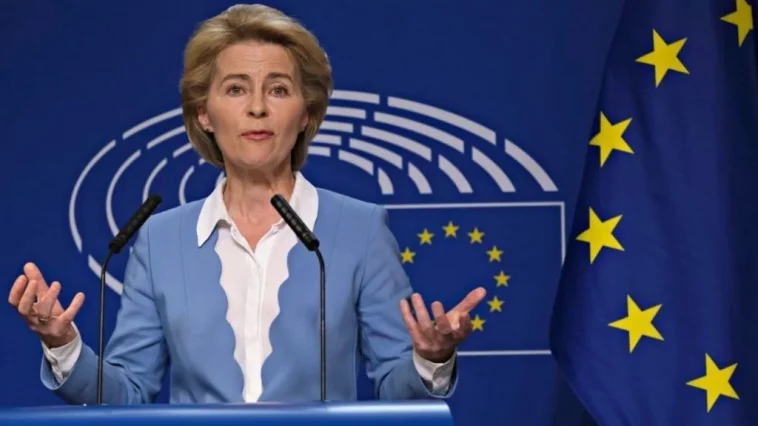Oil prices in Europe have been surging since the start of the conflict in Ukraine amid fears that the European Union (EU) may ban energy imports from Russia.
The EU is eager to shake off its reliance on Russian energy by proposing new plans to diversify energy supplies to be independent from Russian energy.
EU member countries were split over the ban on Russian energy as their dependence on energy imports from Russia varies.
On the whole, the EU was heavily reliant on Russian energy, which took a significant proportion of the EU’s annual imports.
According to Eurostat, the statistical office of the EU, Russia accounted for more than 40 per cent of natural gas and 30 per cent of crude oil imported by the EU in 2019.
At an EU leaders’ summit in France earlier, Latvia, Poland and Lithuania called for a ban on Russian energy imports but were bluntly rejected by Germany and some other countries that simply cannot cut off the energy imports from Russia.
“Europe’s supply of energy for heating, mobility, electricity and industry currently cannot be secured in any other way,” German Chancellor Olaf Scholz said in defending his rejection.
Germany’s Federal Minister for Economic Affairs and Climate Action, Robert Habeck, warned of the repercussions of a ban on Russian energy, noted it would cause severe damage to the economy and the society.
Also in response to rising energy prices in Europe and the current uncertainty in supply, the EU unveiled on March 8, a plan called REPowerEU aimed at diversifying gas supplies and cutting down on energy imports from Russia.
According to the plan, the EU seeks to make it independent from Russian fossil fuels well before 2030.
By diversifying gas supplies, speeding up the roll-out of renewable gases and replacing gas in heating and power generation, the EU tried to reduce its demand for Russian gas by two-thirds before the end of 2022.
European Commission President, Ursula von der Leyen, later proposed in a message on social media that the EU should phase out Russian fossil fuels by 2027.
“We need to act now to mitigate the impact of rising energy prices, diversify our gas supply for next winter and accelerate the clean energy transition,” she said.
The energy tussle has already weighed on the European economy by pushing inflation higher.
The euro area recorded a 5.9-per cent annual inflation in February, a new all-time high.
According to Eurostat, the main contributor of the surging inflation was energy price, which climbed a staggering 31.7 per cent in February.
As a ceasefire remains elusive in Ukraine, economists predicted that inflation could go further up in the future.
The European Central Bank already lowered its projection for economic growth in 2022 to 3.7 per cent in the euro area.
In a research note, Goldman’s Chief European Economist, Sven Jari Stehn, forecast with his team members that the euro area GDP growth would be slashed by 2.2 percentage points in 2022 if the energy flows from Russia to Europe are cut off completely.






